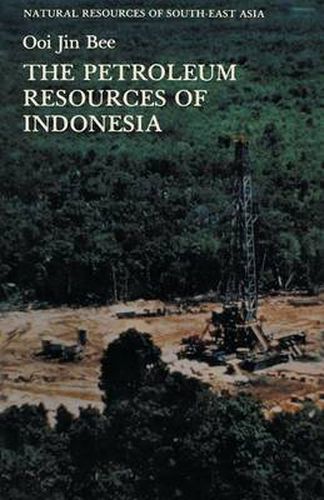Readings Newsletter
Become a Readings Member to make your shopping experience even easier.
Sign in or sign up for free!
You’re not far away from qualifying for FREE standard shipping within Australia
You’ve qualified for FREE standard shipping within Australia
The cart is loading…






This title is printed to order. This book may have been self-published. If so, we cannot guarantee the quality of the content. In the main most books will have gone through the editing process however some may not. We therefore suggest that you be aware of this before ordering this book. If in doubt check either the author or publisher’s details as we are unable to accept any returns unless they are faulty. Please contact us if you have any questions.
THE quadrupling of oil prices within a few months in late 1973 and early 1974 brought to an abrupt end the era of inexpensive oil. Since then the continuing increases in the price of oil traded in the international market and the higher prices of imports of manu factured goods have seriously disrupted the foreign exchange balances of many developing countries and forced them to replan their development programmes. The impact of high oil prices is felt in every country, whether developed or developing, and has brought to world attention the fact that not only are petroleum resources in limited supply and exhaustible but also that substitutes cannot be found easily or quickly. In a world faced with the certainty of declining supplies of petroleum there is widespread interest and concern among all the oil producing countries to evaluate the extent of their petroleum resources and to examine more closely the problems of their development, rates of depletion and methods of conservation. The present work reviews some of the above issues and problems in relation to Indonesia, an OPEC member, and the major oil producing country in South-East Asia. More specifically, it seeks to provide the reader with an overview of the petroleum resources of the country their nature, extent, distribution as well as the problems of their development.
$9.00 standard shipping within Australia
FREE standard shipping within Australia for orders over $100.00
Express & International shipping calculated at checkout
This title is printed to order. This book may have been self-published. If so, we cannot guarantee the quality of the content. In the main most books will have gone through the editing process however some may not. We therefore suggest that you be aware of this before ordering this book. If in doubt check either the author or publisher’s details as we are unable to accept any returns unless they are faulty. Please contact us if you have any questions.
THE quadrupling of oil prices within a few months in late 1973 and early 1974 brought to an abrupt end the era of inexpensive oil. Since then the continuing increases in the price of oil traded in the international market and the higher prices of imports of manu factured goods have seriously disrupted the foreign exchange balances of many developing countries and forced them to replan their development programmes. The impact of high oil prices is felt in every country, whether developed or developing, and has brought to world attention the fact that not only are petroleum resources in limited supply and exhaustible but also that substitutes cannot be found easily or quickly. In a world faced with the certainty of declining supplies of petroleum there is widespread interest and concern among all the oil producing countries to evaluate the extent of their petroleum resources and to examine more closely the problems of their development, rates of depletion and methods of conservation. The present work reviews some of the above issues and problems in relation to Indonesia, an OPEC member, and the major oil producing country in South-East Asia. More specifically, it seeks to provide the reader with an overview of the petroleum resources of the country their nature, extent, distribution as well as the problems of their development.